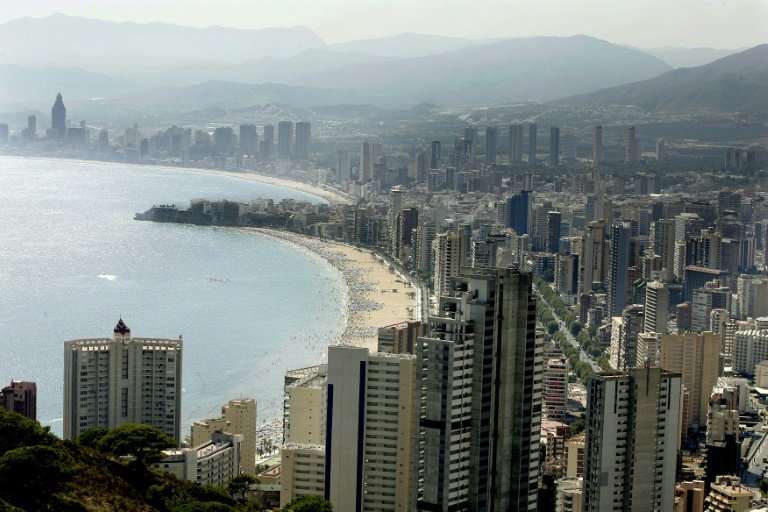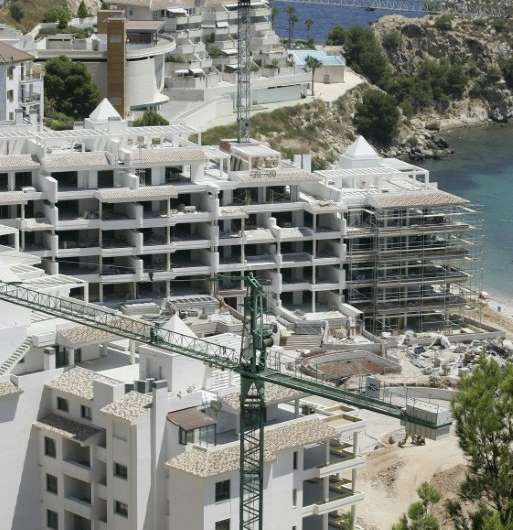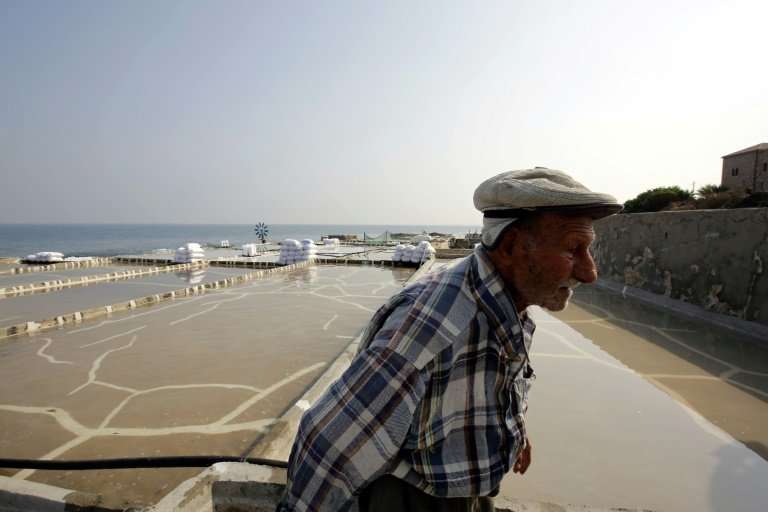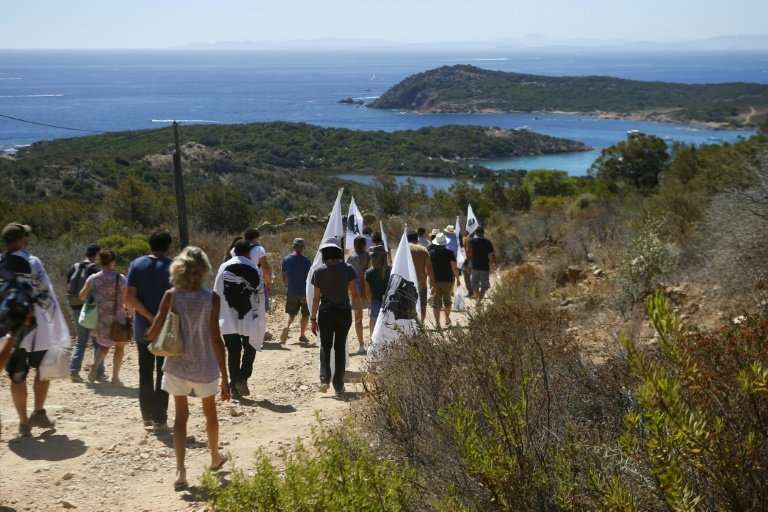View of Benidorm on Spain's Costa del Sol on July 29, 2007
Across the Mediterranean, from an illegally-built hotel in a Spanish nature park to a holiday complex encroaching on Lebanon's salt flats, a tourism boom is threatening precious coastal ecosystems.
With 46,000 kilometres (29,000 miles) of coastline spread across 21 countries, the Mediterranean hosts over a quarter of global tourism—but that comes at a cost to the planet.
"The current tourism model is highly unsustainable," says Plan Bleu, a UN-affiliated body for environment and development in the Mediterranean.
It estimates that arrivals have surged from 58 million in 1970 to 324 million in 2015, and could rise to 500 million by 2030.
The body has warned that future growth will exacerbate "already critical environmental pressures... in coastal and marine ecosystems".
The region's population is also growing, surging from 32 million in 1970 to 75 million in 2000 on the Mediterranean's southern and eastern shores.
While legislation in some countries has improved coastal protection, abuses persist.
Spain's illegal seaside hotel
Spain's 8,000 kilometre coastline has suffered multiple pressures, starting with a construction boom in the 1970s and another bubble ahead of the global property market crash in 2008.
A 21-storey hotel built against beachside hills in a protected nature park in Algarrobico is a symbol of illegal construction in the early 21st century.
Construction work in Altea on Spain's Costa del Sol, pictured July 29, 2007
Condemned to demolition by the Supreme Court, the 15-year-old hotel "remains standing because multiple lawsuits are underway", including to determine whether owner Azata del Sol should be compensated, Greenpeace Spain's Pilar Marcos told AFP.
Coast privatised in Lebanon
In Lebanon, it's hard to go to the beach without paying private resort owners who control the coast.
In 2012, a Lebanese government report said about five million square metres of coastline is illegally built on.
Only 20 percent of the coastline is now freely accessible, says Jad Tabet, head of Lebanon's order of engineers.
Yet another new tourist complex in the northern Anfeh region has raised fears among environmentalists.
Elias al-Najar, 93, walks past a salt evaporation pond in the coastal Lebanese town of Anfeh on July 21, 2017
Called Natour Resort, it threatens one of the oldest salt flats in the Mediterranean in an archaeologically rich area that also boasts the "cleanest water on the Lebanese coast", says marine biologist Sammy Joe Lycha.
Pressures in France
A 1986 "coastal law" in France protects around 15,000 kilometres of coastline in France and its overseas territories from urbanisation "despite land pressure", says Environment Minister Nicolas Hulot.
Lawmakers recently sought to review the legislation—provoking an outcry that forced them to retreat.
But abuses have not stopped.
On the island of Corsica, environmental defence association "U Levante" has after 20 years won a court order to demolish a coastal villa built by a wealthy Swiss investor.
Protesters in Corsica demonstrate against a court decision not to destroy houses built on the protected site of Rondinara beach on August 13, 2017
The Coastal Conservancy, a public body that encourages sustainable tourism, has protected 200,000 hectares (500,000 acres) of inland lakes and shoreline in mainland France.
It's a model Francisco Torres Alfosea, a geography professor at Alicante University, hopes Spain will adopt.
It's also the envy of environmentalists in Cyprus, who are campaigning against a development they say threatens sea caves that are home to endangered monk seals.
© 2018 AFP



























